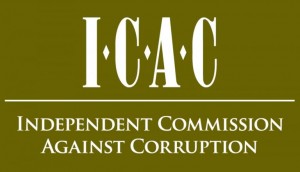Corruption exists in many countries and societies today. While the corruption problems faced by each country may be different and each country might need special practices, laws, etc to suit the local environment, it is believed that corruption in all parts of the world stem from common causes and some common approaches might be able to root it out. The story of Hong Kong is one example which comes in mind.
In the 1950s and 1960s, Hong Kong was riddled with corruption in the same way as we are now. It was a way of life and people had come to accept it as normal. From law enforcement agencies to government offices, judiciary to local elections, corruption was everywhere. Black money was in circulation and mafia ruled the roost with local police in their pockets. The situation seemed as hopeless and the government seemed powerless to do anything. The same can be said of today’s India. Note – You can find answers to your questions about the recent anti-corruption movement in India here.
However, in the early 1970s, Hong Kong was undergoing through significant economic growth. The aspirations of people were rising, and corruption was one of the major problems they were sick of. One event led to another and public protests followed which turned into a national outcry. The Independent Commission Against Corruption (ICAC) was formed in 1974. The ICAC focussed on three main areas, investigation, prevention and education.
ICAC’s most important activity is of receiving and investigating complaints. Complaints can be received from a 24 hour hot line number or from other sources. The legal framework was setup in a way to give ICAC ample powers to do its job effectively. For example, ICAC can examine bank accounts and business documents. Suspects might be asked to disclose their assets, income, etc. ICAC can arrest any person suspected of committing a corruption offense. At the same time, there were checks and balances to ensure the ICAC is accountable. The powers mentioned above are subject to the scrutiny of judiciary. ICAC is also answerable to any questions about its functioning that anybody might have.
The second activity of ICAC is to examine systems in organizations and proposing anti-corruption measures. This has led to increased transparency and accountability in public systems, lending weight to the principle that “Prevention is better than cure”.
The third important activity is to spread awareness and educate people about the role of the ICAC. This activity also helps gather public support for any anti-corruption related programmes using media. ICAC officials visit schools, colleges to interact with the youth and explain them about the anti-bribery laws, and other codes of conduct to prevent corruption from society.
So how is Hong Kong today? It is regarded as one of the most cleanest and corruption free places in the world today. It provides a compelling example that changing the rules can defeat corruption. In 1977, 38% of population thought that corruption was widespread, by 1982 only 8% did. ICAC, backed by a strong will to tackle corruption from the government, using both rules and education as weapons, was able to dramatically reduce corruption and change public attitude towards the menace. Transparency International now rates Hong Kong ahead of countries like UK, USA and Japan in its list of least corrupt places.
Read this speech of the former head of ICAC, Mr Tony Kwok Man-wai to know more about what led to the success of ICAC.

